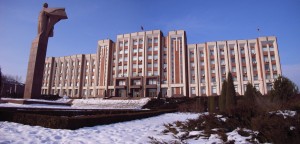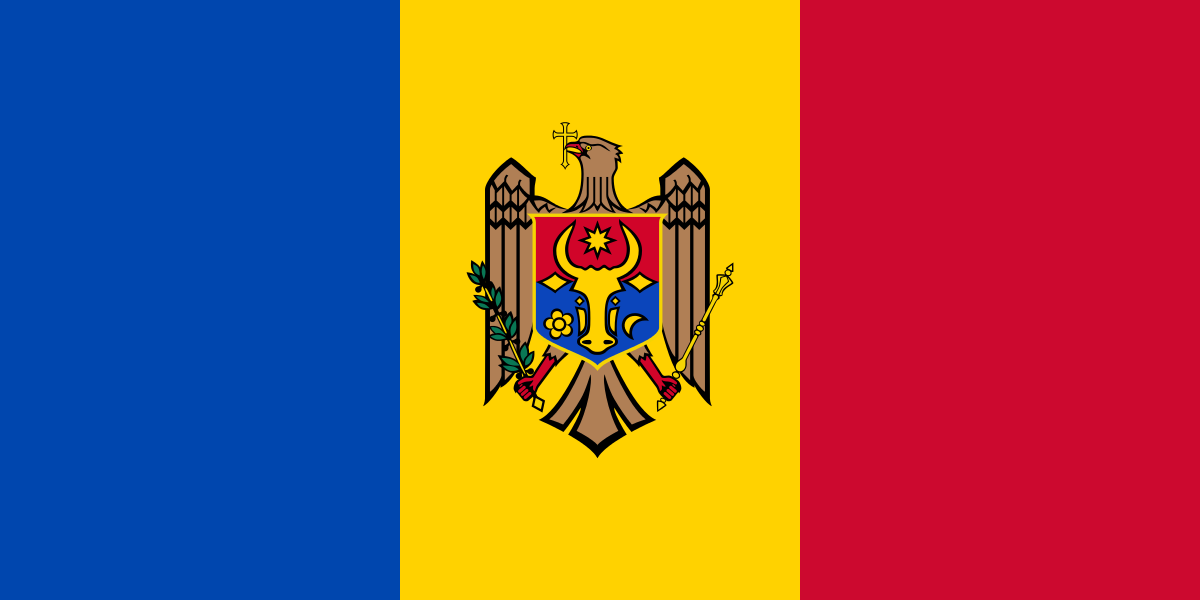Long dismissed as the poorest country in Europe, the Republic of Moldova is now on a path towards integration with Western Europe that threatens to tear the country and its population apart. As Ukraine convulses in and out of violence — and possibly war after the Russian invasion of Crimea — its neighbor to the south faces a similar ideological and geopolitical question that is now posed throughout all of Eastern Europe. Like Ukraine, which is hanging on a political precipice as it faces invasion in the south and division in the east, Moldova is caught between a Russian sphere of influence and a specter of Western influence. The Republic of Moldova, a small, poor and proud nation that is pertinent to true European integration and peace, is strategically and unfortunately located between Romania and Russophone southern Ukraine and Crimea. Whether the country can survive tumultuous shifts toward Europe without splitting along ideological lines is a divisive and painful question that will echo throughout the country and the region.
As with Ukraine, Moldova was under the thumb of the Soviet Union throughout the Cold War. Moldova, however, was considered a relatively unimportant Soviet satellite state by the West and received little attention from outside the Iron Curtain. As part of the USSR, the Moldovan economy and culture became inextricably linked to Russia through special interests and political connections. In the post-Soviet era, relations between Romania and Moldova grew rapidly out of a shared cultural and linguistic heritage, only to falter after the Communist Party of Moldova gained control of the government from 2001 to 2009, once again favoring economic trade with Moscow at the expense of West-leaning Bucharest. Romania, considered Moldova’s link to the west and the EU, joined NATO in 2004 and the European Union in 2007, pulling itself out of the Russian sphere of influence. After nearly a decade of turmoil, the Moldovan people had revolted against the ruling Communist Party in protests that toppled the government and resulted in elections in 2009. Since the unrest, the Communists have maintained a plurality in the Parliament with the opposition parties forming a grand coalition for European integration. Moldova quickly devolved into virulent polarization that continues to this day.

Amidst social turbulence, stark polarization and no-confidence votes in the ruling coalition, the Republic of Moldova signed strategic treaties with the European Union on free trade and visa-free travel and liberal visa policies, opening up the country to huge investment. For example, a gas pipeline from Romania will transport up to 1.5 billion cubic metres per year, and infrastructure from companies as Austria’s Gebauer & Griller will continue to build extensive cables and wiring to supply electricity and basic necessities for Moldovan industries. Despite a major drought that devastated the agricultural industry as the Eurocrisis brought the country into a recession, Moldova’s GDP is estimated to have increased by 3% in 2013 and will continue to grow at a similar rate if European integration continues as expected.
Moldova continues to grow closer to the European Union as it recovers from both recession and decades of mismanagement and poverty while Russia threatens to derail economic growth in order to keep it in its sphere of influence. After agreeing to Association Agreements with the EU and Georgia at the Vilnius Summit, Moldova stood defiant against Russia. It agreed to strong economic links with the EU, lowered export costs to the bloc, and implemented the most liberal visa policy in the region. Its northern neighbor, Ukraine, rejected the deal and was subsequently thrown into a series of political crises that have destabilized the country and led to Russian forces being placed in Crimea. No longer entirely dependent on Gazprom, the Russian gas company that has a chokehold on Eastern Europe, after an agreement with Romania and the EU, Moldova was as free as it ever has been to make its own geopolitical choices. Despite a crippling Russian embargo on wine, which has devastated the Moldovan economy once again, the EU has agreed to fully allow for the importation of Moldovan wine with “no limits and no duties” in order to offset the 20% loss of income from Russia.
While economic prospects improve for the small nation, the integrity and unity of the country is on the precipice of disaster. Currently, a plurality of only 44% of the country supports European integration while 40% supports joining the Eurasian Customs Union with Russia as the dominant player, according to a report by Slovak Atlantic Commission. Such a slim plurality in favor of the European Union only skims over the stark divisions throughout Moldova. Hundreds of thousands of Moldovans are currently working overseas, mostly in Russia, with 25% of the work force working overseas at least once in their career. This gives Russia the ability to inflict stark damage to the Moldovan economy and social fabric. Remittances from migrant workers in Russia supplied $1.3 billion USD in 2011 and $1.6 billion in 2012 to the Moldovan economy. This factor greatly empowers opposition parties who support integration with the ECS.The most dangerous and threatening divisions in Moldova are the separatist movement in the southern and eastern regions of Moldova, Gagauzia and Transnistria. While Gagauzia is a recognized autonomous area of Moldova that has partial independence, granted after political unrest, it is still legally a sovereign part of Moldova. Meanwhile, Transnistria is an unrecognized separatist region in the far east of Moldova, constituting a small snakelike border between Moldova and the Ukraine. Both regions are predominately Russian-speaking and are economically supported by and culturally linked with Russia and the Russophone regions of Ukraine. Highly ranked Russian officials go out of their way to point out the Russian “special relationship” with the Gagauzia region. This has scary echoes of the rhetoric used when describing the Crimean peninsula. In a move denounced by the Moldovan central government as illegal, a plebiscite was held by the Gagauzian government, which revealed massive opposition to European integration in the region. horribly underreported is the presence of Russian “peacekeeping” troops in Transnistria ever since a war in the early nineties between Moldova and Transnistria that ended in stalemate. There also have been repeated elections demanding unification with Russia throughout Transnistria, all denounced as illegal by the Moldovan and Western governments. This also draws eerie parallels to the upcoming plebiscite in Crimea to leave Ukraine. Some international diplomats, such as former Georgian Ambassador Salome Samadashvili, suggest that such internal disputes could lead to a civil war and after the military action in Crimea, possibly invasion. With historic violence and political turmoil occurring just across the border in Ukraine and Crimea, it would be naïve to ignore the possibility of another eruption of bloodshed on the doorstep of Romania and the European Union.
Now why should the West care about a seemingly insignificant and poor nation, aside from a duty toward supporting human rights and democracy as well as the rights of a sovereign nation only recently freed from the chokehold of a superpower? For starters, under the Russian-supported Communist Party, Amnesty International heavily condemned the use of torture by the government, limited free speech, corruption, as well as anti-gay legislation and severe prison abuses. Moldova also holds a highly strategic place in Eastern Europe. Ukraine has the potential to devolve into a war that could put even more pro-Russian pressure on southern Ukraine and possibly troops sympathetic to Russia close to the border of Romania and Moldova and in the Black Sea.
The dissolution of Moldovan sovereignty would pose a direct threat to the NATO-allied Romania, where the most recently proposed anti-ballistic missile shield will be placed in 2015, a move that has already infuriated Russia. Moldova is increasingly growing closer to the West, supplying troops for the peacekeeping mission in Kosovo. Romania has pledged huge support for the Moldovan people, both out of kinship and common sense. With Russia’s language describing Crimea mimicking how it has described Transnistria and Gagauzia, Moldova and world governments fear a possible intervention there as well. With Moldova refusing to recognize Gagauzian plebiscites and ethnic Russian voices in Transnistria, Russia could easily find justification for military intervention on the grounds that the rights of ethnic Russians and those sympathetic to Russia are not being protected. Further instability directly on the borders of one of the most important members of NATO and any prospect of war, especially on the forefront of European integration, should terrify the West.
